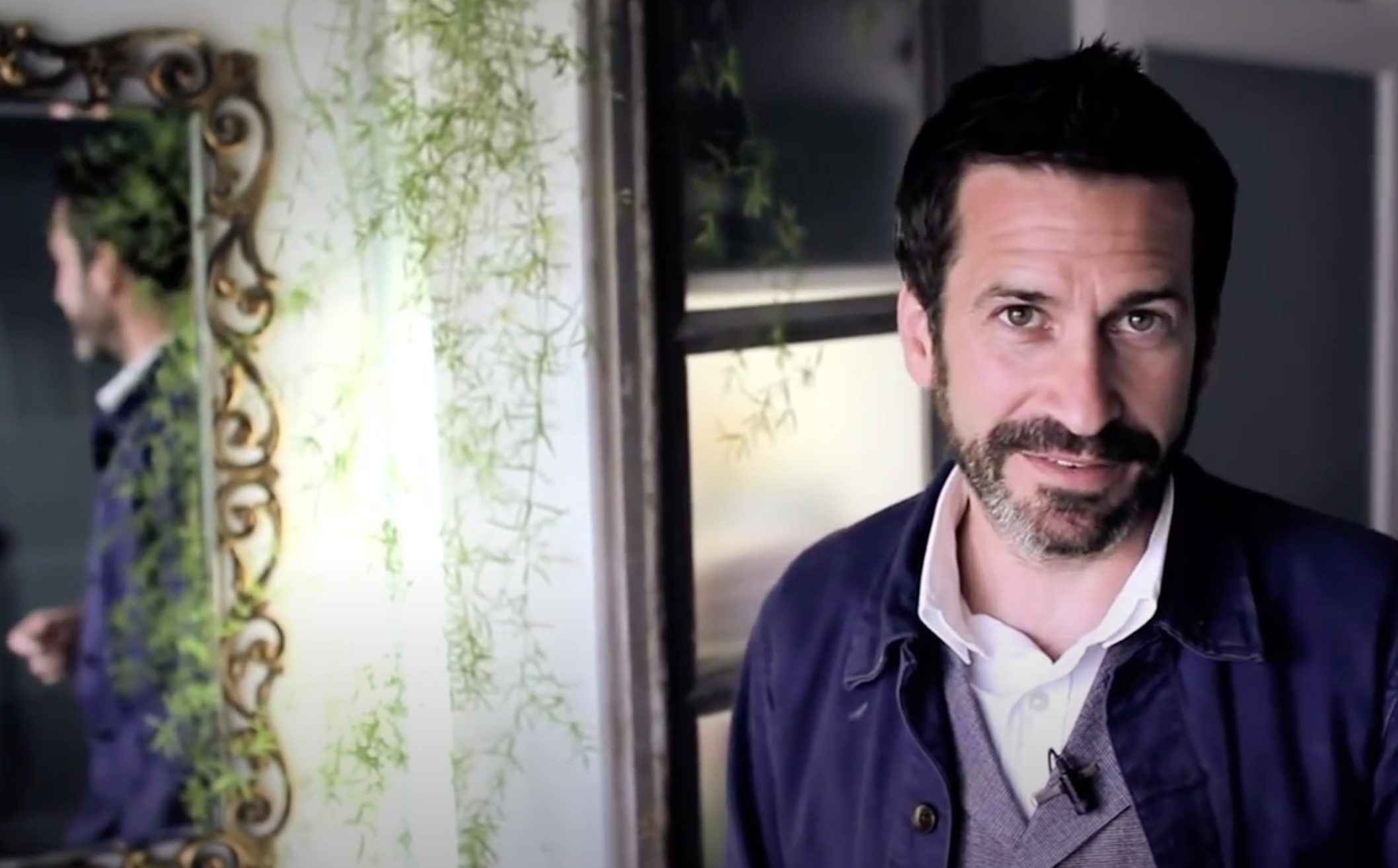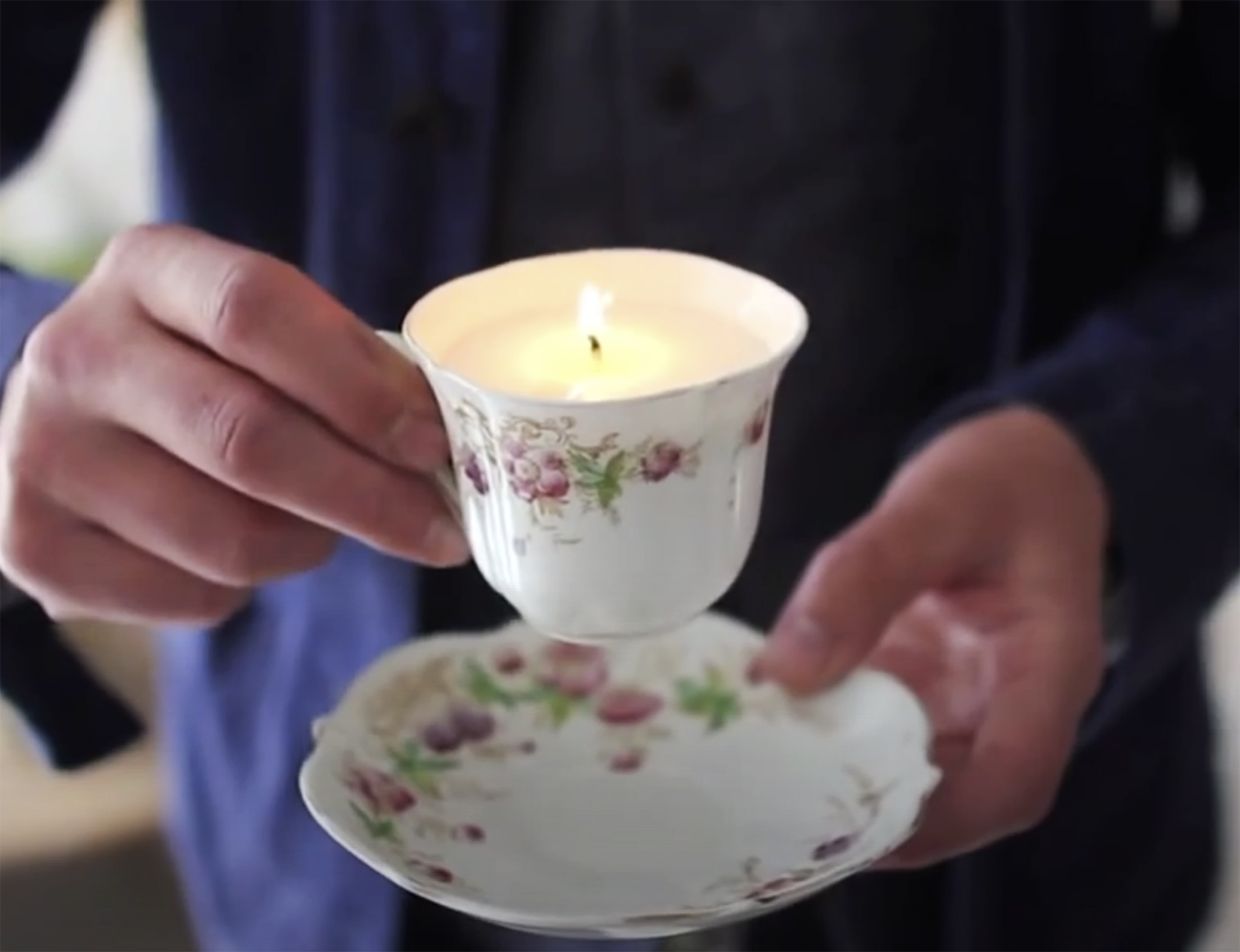Interior designer Oliver Heath shares his eco chic tips
He's put eco into chic, and if you're among those who would like to be more eco-friendly but think it's too much of a hassle or too expensive, he can help

A recent survey suggests nearly half of Britons like the idea of being more eco-friendly but think it'll be too costly - or too much trouble. Interior designer Oliver Heath, who's committed to sustainable design, says neither is true, and he offers simple steps we can all take to do our bit to reduce waste and save energy. Top tip: forget the egg timer...get a shower timer instead! (The editor has bought one of these, uses it daily and is delighted by how long a 4-min shower seems to be..)
A mixed picture emerges from a survey by a loo paper manufacturer of British attitudes towards the whole business of being eco-friendly.
On the down side, nearly half (48 per cent) of the 2,021 people questioned said they'd like to buy more eco-friendly products and behave in greener ways, but think it would be either too expensive and/or too much of a hassle.
Cost certainly seems a major concern, with 78 per cent of respondents saying they don't feel well-off enough to buy green products over their standard counterparts, with 26 per cent of those people asserting an eco product would be £2 more expensive.
But Oliver Heath, eco design expert, suggests it’s an outdated preconception that ‘eco-friendly’ or sustainable products are more expensive: 'While some can be competitive on price, instead you should think long-term savings rather short-term cost. Investing in energy-saving products can have a significant long-term cost benefit which can far outweigh any initial investment.'
On the positive side, certain behaviours are becoming the norm for most of us. For example, up to 85 per cent of us recycle household rubbish (cans, glass, newspapers, plastics), and 86 per cent of us do now turn off lights when we leave a room.
More than 80 per cent of us use LEDs in our lamps, while more than 60 per cent of us recycle clothing we no longer wear and 66 per cent of us use the washing machine only when the load is full.
Oliver Heath says it's great we’re already doing simple things which are easy to work into normal household routines: 'There are so many little things we can do which make a big difference when it comes to living more sustainably.
'From using eco products such as recycled toilet paper, fitting energy saving devices such as aerated shower heads, to upcycling worn out or old products to give them a new lease of life – there are always ways to incorporate more sustainable choices without compromising on comfort.'
And of course given the energy crisis and staggering cost of electricity and gas, be sure to turn down your thermostat to 19 degrees if you can. (Note though that elderly people and those with health conditions such as COPD are recommended to set their thermostats at 22 degrees.)
If you not already on the case with these, here are Oliver Heath’s top tips for making homes more eco-friendly:
- Put a recycling bin in the bathroom - we often forget about all the recyclable materials that come from the smallest room such as shampoo bottles and loo roll tubes.
- Cut electricity bills by switching to low-energy LED light fittings. LEDs can last for a good 50,000 hours, far longer than compact fluorescents.
- Cutting down on the amount of hot water we use can save us money in three ways: we pay to buy, heat and dispose of hot water, so using less through fitting an aerated shower head and using a shower timer will save gallons every day.
- Divert usable old or worn out products from waste and find items to upcycle. Vintage or upcycled items add character, identity and style, making our homes that little bit more special.
See a short video with Oliver talking about eco tips for the home

